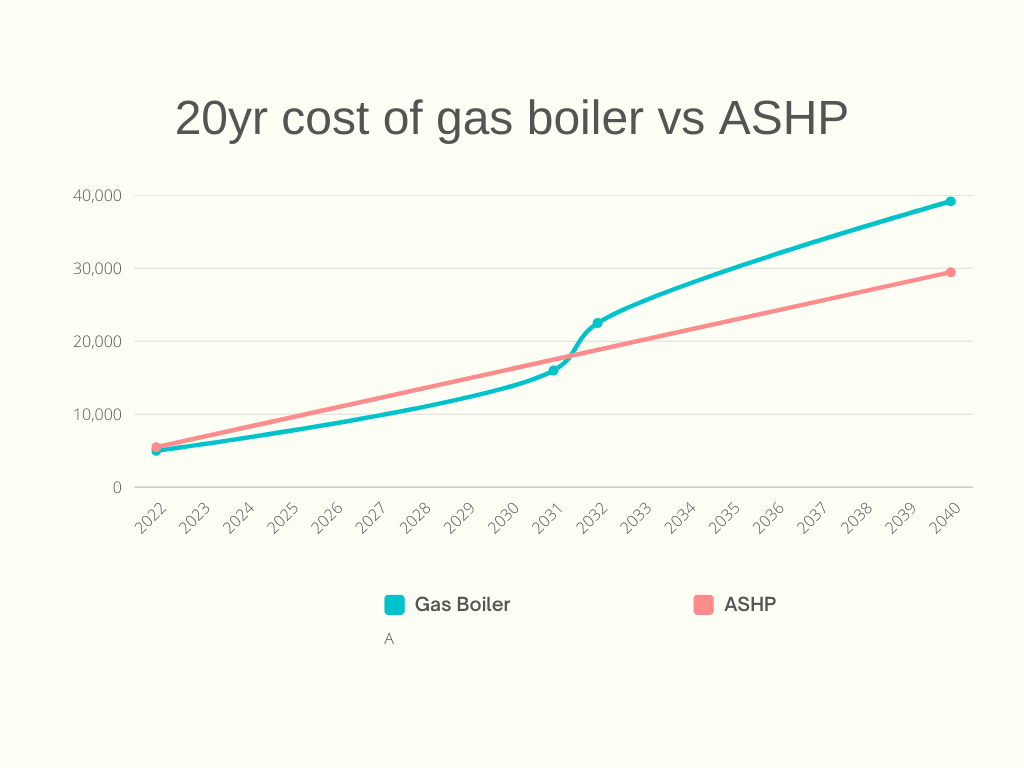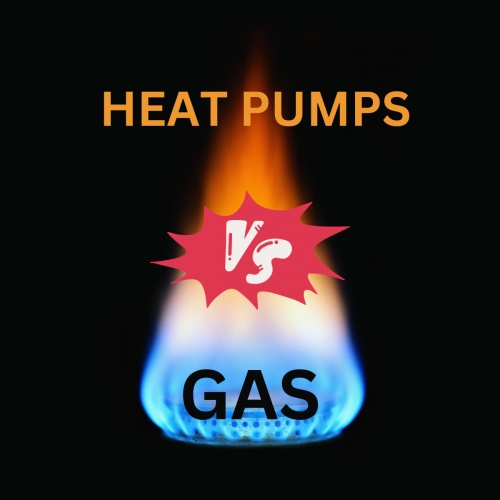This article will answer this question however, it’s important to remember that gas is being phased out as an option for domestic heating regardless of the answer. By 2025, all new build homes won’t be able to install a gas boiler and, by 2035, the use of gas boilers will be phased out entirely.
The alternative will be renewable energy systems such as heat pumps. These have a higher upfront installation cost, although government incentives such as the Boiler Upgrade Scheme (BUS) does help, but are they cheaper to run?
The key to this question lies in the quality of the design and installation, a well designed and installed air source heat pump (ASHP) system will operate with a Seasonal Performance Factor (SPF) of 3.5 to 1, meaning every unit of electricity would provide 3.5 units of heat. A poorly designed ASHP will operate at a much lower SPF resulting in far higher running costs compared to mains gas.
Based upon an SPF of 3.5, an electricity unit cost of 34p/kWh and a gas cost of 10.4p/kWh (both UK averages Dec 2022), the difference in running costs for an average sized house are as follows:
|
Running Cost |
||||
|
Usage |
Alternative |
Heat Pump |
Reduction |
20-year Reduction |
|
20,000 |
£ 2,570 |
£ 2,040 |
£ 530 |
£ 10,600 |
|
21% |

Further to the above, the current cost of electricity includes carbon levies due to it being a historic ‘dirty fuel’. As the production of electricity is becoming greener by the day, in the coming years these levies will start to transition across to more ‘carbon heavy’ fuels such as mains gas. In turn, this will further improve the difference in running costs between heat pumps and mains gas.
|
Carbon |
|||
|
Usage |
Alternative |
Heat Pump |
Reduction |
|
20,000 |
4,295 |
1,105 |
3,190 |
|
74% |
Alongside the financial savings, the carbon savings are also significant. Compared to a gas boiler, a heat pump will emit around 75% less carbon meaning that the installation of a heat pump is one of the most effective ways for a homeowner to reduce their carbon footprint.







